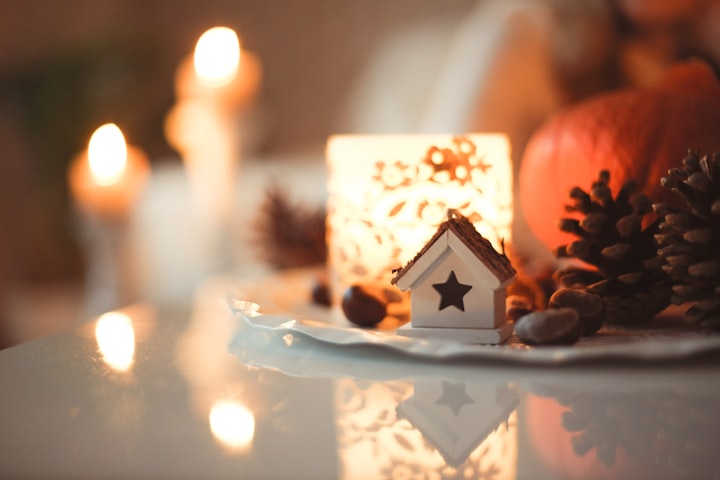Why do we get depressed at the holidays???
We all do, one way or another...

For many people, the holidays are a time to look forward to. Even with meal planning and gift giving, many of us still find it to be a happy time of year. But this isn’t always the case. For some people, the holidays can be an emotionally exhausting and difficult time. This is especially true during the pandemic since there are questions about how to keep events and family gatherings during COVID-19 safe.
Feeling depressed during the holidays is a real but treatable concern. Here are some of the questions I get from patients, and how I answer them.
Is depression during the holidays a real thing?
Yes, it can be. Some people experience something called Major Depressive Disorder (MDD) with a seasonal pattern. This is what some people know as Seasonal Affective Disorder. It’s a clinical depression that tends to present itself beginning in late fall and can go on until early spring. It’s known to be linked with changes in light, so it’s more common in northern climates. Research shows that clinical depression with a seasonal pattern impacts as much as 6 percent of the population. But people who don’t normally struggle with depression can also have issues due to there being less daylight in the wintertime. The limited exposure to natural light can impact our body’s rhythms and neurochemical balance.
Can someone who normally does not suffer from depression be depressed over the holidays?
Yes. This may or may not be related to a diagnosis of MDD with a seasonal pattern. The holiday season comes with its own set of stressors and expectations, both internally and externally. Being overwhelmed by these holiday-related stressors can lead to symptoms of depression.
What triggers increased depression around the holidays?
The holiday season can be stressful. People are often busier. And trying to balance work and personal obligations can lead to more stress. It can also be a financially stressful time, since gift giving and events can take a toll on your wallet.
And while holidays are a time of joy, people sometimes have unrealistic expectations for how special something is going to be. This can lead to feelings of let-down later if those aren’t met. Similarly, people may be more likely to compare themselves to others during this time of year. It’s easy to look at someone’s holiday card and think their life is more perfect than it really is. This can lead to assuming everyone else around you is happy, and you’re the odd one out.
The holidays are also stereotypically a time to be surrounded by family or loved ones. This can bring up reminders of other emotions. There could be a family conflict that’s been going on for a while. Or, it could be the first holiday season after the passing of someone you love. That can re-trigger feelings of grief and loss, and be incredibly challenging.
What should loved ones do to support someone with symptoms of depression during the holidays?
Listen empathetically. You don’t have to understand how someone is feeling to have respect for it.
Encourage your loved one to meet with a mental health professional. They can do an individualized assessment to help determine what that specific person needs in order to get better. Our organization has care teams who can help
HealthPartners & Park Nicollet Behavioral Health Care
Stillwater
HealthPartners Central Minnesota
Amery Hospital & Clinic
Be careful of accidentally shaming or minimizing the other person’s experience. Instead, make a point to express feelings of hope. You can also offer to serve as a distraction. Invite them to go see a movie or try out a new restaurant with you.
And be sure to educate yourself. The Make It OK campaign has some great resources. It may help you with what to say and not to say to someone who is struggling.
What can someone with depression do during the holidays to take care of themselves?
There are many ways to help your mental well-being during the holidays. Some of these strategies may work better for you than others. But be sure to try a few to find what works best for your needs.
Make sure your expectations are realistic. Ask yourself if you’re expecting too much from yourself or others. Then, see how those expectations are making you feel. Are they helpful or hurtful?
Practice saying ‘no’. You’re one person, and there’s only so much you can do in a given day or a given holiday.
Limit external sources of holiday pressure. Maybe take a break from social media if seeing other people’s holiday photos is causing you to engage in self-comparison. Find winter activities to engage in that aren’t associated with the holidays – like snowshoeing, for example.
Don’t slack on self-care! If going to yoga helps you cope with stress, keep doing that. If spending time with friends helps, prioritize spending that time regardless of the season. Prioritize taking time for yourself. Be open to experimenting with new self-care strategies.
Work with a mental health professional. Talk therapy can help you cope with holiday-related stress. And if you’re dealing with MDD with a seasonal pattern, they may also recommend light box therapy or medication to help alleviate some of the symptoms.
About the Creator
The normal mom
I am passionate about covering different topics. A normal mom, that likes to wright when ever she gets time, this helps me explore the world around, the world my kids, and I live in.






Comments
There are no comments for this story
Be the first to respond and start the conversation.